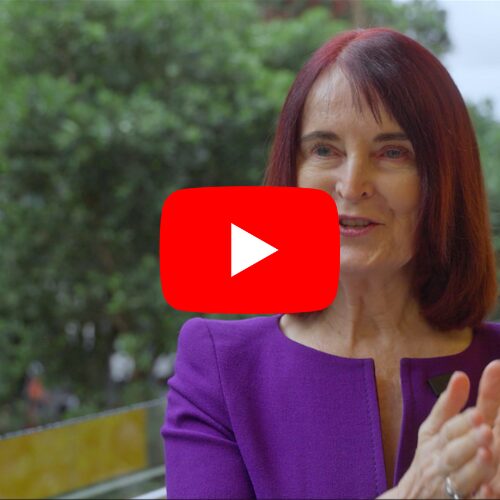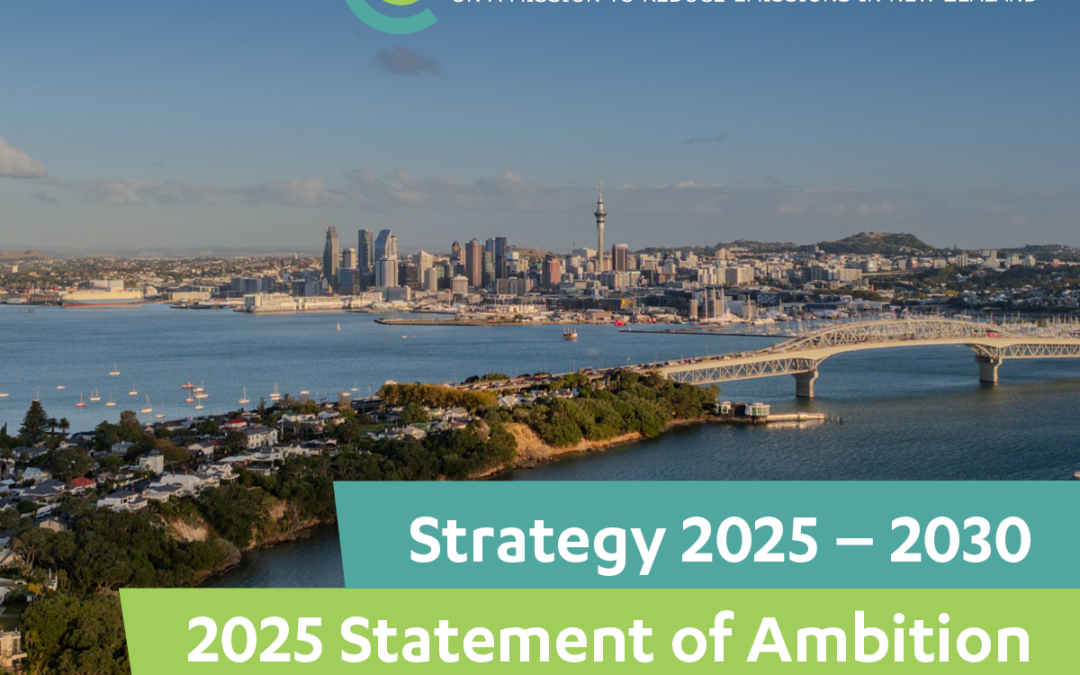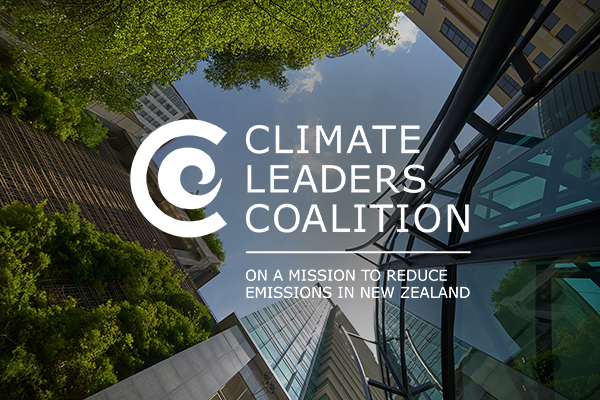News
Latest from the Coalition

Climate Leadership Insights: The B Team Australasia
Lynette Mayne, Executive Chair of The B Team Australasia, recently visited Aotearoa New Zealand for the launch of the Climate Leaders Coalition’s new Statement of Ambition and refreshed strategy. In this Q&A, Lynette shares insights into the work of The B Team...

Climate Leaders Coalition launches next chapter
The Climate Leaders Coalition (CLC) is this morning unveiling a new Statement of Ambition and refreshed Strategy, marking the next step in business-led climate action in New Zealand – just as COP30 concludes in Belém.

SBC Hot Seat with Shannil Varma (CLC Manager)
This week, we've got Shannil Varma, Manager of the Climate Leaders Coalition (CLC), in the hot seat. Shannil's role sits within the Climate and Nature team at SBC (which is the secretariat organisation for CLC), and he oversees all the day-to-day operations and...

Climate Leaders Coalition re-commits to ambitious climate action with new convenor
The Climate Leaders Coalition welcomes Genesis CEO Malcolm Johns as the Coalition’s new convenor, succeeding Spark CEO Jolie Hodson MNZM. Since 2018, the CEO-led Coalition, made up of 87 signatories and accounting for around 30 percent of New Zealand’s GDP, has helped...
Search all news

Global Toyota enjoys a strong local reputation
In the 2019 Colmar Brunton Corporate Reputation Index released today, in partnership with Wright Communications, Toyota New Zealand is the only international brand to figure in the top 10 companies.
It is also the only vehicle supplier in the top 20 most reputable companies.
Sitting in fourth position amongst Kiwi brand icons such as Air New Zealand and The Warehouse is great news for Toyota and reaffirms its decades-long commitment to New Zealand and providing Kiwi motorists with reliable and affordable vehicles.
Notably the Colmar Brunton Corporate Reputation Index is based on the global RepZ framework and measures four standard attributes to arrive at a total reputation score.

Why Toyota doesn’t really sell electric vehicles
Everybody’s talking about electric vehicles (EVs) in New Zealand at the moment and it seems like almost every major carmaker is focused on EV power in some way.
NZ is theoretically the ideal environment for EVs, with over 80 per cent renewable electricity.
So you might think it strange that Toyota, NZ’s number one car brand and a pioneer of alternative eco-power with its hybrid engines, doesn’t have any pure EVs and only one plug-in of any kind: the rather niche Prius Prime.

Toll committed to climate action
Opinion piece from Toll on the work they’re doing to reduce their emissions and be smarter when it comes to driving, energy, fuel efficiency, planning & facilities. *Article on p33

The Warehouse Group’s Nick Grayston on why businesses must get used to environmental scrutiny
The Warehouse Group recently made the decision to go carbon zero, making it one of three major retailers that have done the move worldwide – a bold move by any standards. Chief executive Nick Grayston shares why the retailer made this decision, why it isn’t just a greenwashing strategy and its plans to expand on this in the future.

It’s not just The Warehouse going carbon neutral; people are doing it too
Courtney Simpson spent $22,000 on an electric car to bring down her carbon footprint.
By the time she’s finished paying it off the Nissan Leaf, she will only be marginally ahead financially compared to running a petrol-guzzling car, but that’s not the point.
“Driving an EV, or cycling has a much higher emotional return,” she says.

Cars are no longer just cars – Meridian Energy
In a shift likened to the iphone revolution, cars with names like NIO or Byton may be the future.
Back in the late 80s there was the cellphone: a big brick of a thing, out of the reach of many.
Within no time, there was a monumental shift. Who can do without one now?
Today’s equivalent to those early Motorolas is the electric vehicle (EV) industry, says Nick Robilliard, procurement manager for Meridian Energy.

What is the carbon footprint of international tourism?
Campervan company Tourism Holdings, which owns the Britz and Maui brands, trialled electric campervans for the first time this summer. It has five two-berth, self-contained motorhomes in Auckland and Queenstown, with 10-day itineraries built around having chargers every 50-100km. The Auckland itinerary takes in the Coromandel and Raglan, while the Queenstown trip heads to Dunedin.

Toll launches electric trucks in Japan
Home / News / Toll launches electric trucks in Japan
Toll launches electric trucks in Japan Nigel Moffiet April 3, 2019 News No Comments
Toll is introducing the first two electric vehicles to be used in its Japan operations.
The light-duty all-electric Fuso eCanters trucks from Daimler will operate pickup and delivery services in Tokyo.

Soar Print family beats disruption and turns carbon neutral
NBR entrepreneurs series on three siblings running a business.

How startups are leading the business community’s response to climate change
When 60 CEOs signed up to the Climate Leaders Coalition in July 2018, much was made of the presence of the big players like Air New Zealand, Spark, Fonterra and Vector. The Spinoff caught up with the nimble smaller companies leading from the back.
Since the launch of the Climate Leaders Coalition last year, 82 CEOs have signed the joint statement committing their organisations to take voluntary action on climate change. Since then much focus has been on the big players, and just how committed they are to a carbon zero future that demands difficult questions of their status quo.

Watercare releases its climate change strategy
The global impacts of the changing climate will bring significant direct and indirect changes and challenges. For Watercare these include extreme weather events, prolonged dry periods, rising seas and increased coastal flooding.
Our climate change strategy sets out our future direction as we embark on a journey to operate a low carbon organisation that is resilient to climate impacts

Otago Polytech opinion – Our people make a difference
In light of last month’s climate change action by high school pupils, Jen Rodgers, sustainable practice adviser at Otago Polytechnic, provides a stocktake of her institution’s initiatives in this area.
